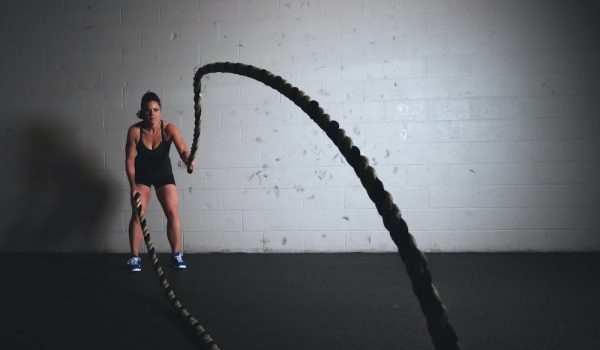Are your bladder habits normal? This week is World Continence Week and as part of it, Australians are being asked to ‘Check their Bladder’ to see if it might be working a bit too effectively.
Overactive bladder is a condition where you suddenly have to go to the loo. It affects around one in nine people worldwide, yet only six out of every ten people who display symptoms ever go to see a doctor. ‘I just thought I had a really small bladder,’ says Alesha Vincent, a 32-year-old personal trainer from Sydney. ‘I didn’t realise it’s not normal to be sitting talking to someone and have to jump up and rush to the loo mid-conversation.’
The main symptom of overactive bladder (OAB) is this sudden, urgent need to go to the bathroom. On top of this, most people with OAB need to urinate frequently throughout the day – frequently being defined as eight or more times in 24-hours. Waking more than one during the night to use the bathroom, called nocturia, is another potential symptom. And in some people, although not everyone, incontinence occurs.

‘I visit the bathroom at least 10 times a day – I say to friends I’m like one of those little dogs that has to pee all the time, in fact I think I pee more than my dog,’ says Alesha. ‘It’s difficult sometimes as when I’m training someone it can be hard to nip off suddenly and so I plan really well. And yes, I normally wear black leggings just in case. Thankfully, I’ve never had a really embarrassing moment. The only time it gets difficult is when I’m dating and they wonder why I’m constantly rushing to the bathroom – and if things do get intimate there’s often an ‘umm, hang on a minute’ moment when I have to go and pee.
I’ve also had to alter my diet slightly – tea, coffee and alcohol all make my symptoms worse so I try and limit those. But otherwise, it’s just a case of being really organised – if I’m going in the car for longer than a one hour drive, I have to build in a rest stop. Some days are better than others, but it’s been a part of my life for so long I’ve just got used to it.’

Overactive bladder occurs when nerves in the bladder send signals to the brain at the wrong time. Thinking the bladder is full, the brain tells the bladder to empty which creates that sudden need to go. Like Alesha, many people who have the problem simply think its normal and so create coping tactics to handle the symptoms. Others are too embarrassed to mention it to their GP or don’t say anything as they don’t think there’s anything that can be done to help – but there is. Overactive Bladder can be treated with medication that helps alter the way the nerves behave. So, if when you Check your Bladder you realise everything above sounds a bit familiar, make an appointment with your GP today.
Here are the typical OAB symptoms to watch out for:
- Urgency: The sudden overwhelming desire to urinate that is unable to be put off.
- Frequency: The need to urinate frequently during the day, often defined as eight or more times over a 24-hour period.
- Nocturia: Waking at night to urinate, often one or more times.
- Urge Urinary Incontinence: This describes the involuntary loss or leakage of urine. A feeling of urgency – the sudden urge to ‘go’ – is often felt immediately before or during a leak
Astellas has launched an awareness campaign, Hold On Australia, to raise awareness about OAB and try to encourage people to speak to their doctor about any urinary symptoms that bother them.
Tips to help you manage OAB
1. Adjust your diet: Certain types of food and drink irritate the bladder more than others. But some actively encourage bladder health. Check out this list of foods to avoid and those to embrace.
Foods to limit:
- Tea
- Coffee
- Alcohol
- Fizzy drinks
- Fruits, especially citrus (oranges, lemon, grapefruit)
- Citrus drinks (orange or grapefruit juice)
- Tomatoes and tomato-based food
- Spicy foods
- Chocolate
- Artificial sweeteners

Foods to embrace:
- Cranberry or prune juice
- Plums
- Salt-free crackers
- Cookies: non-chocolate, oatmeal
- Hard candy
- Jelly
- Decaffeinated beverages: tea, coffee
- Cheese
- Cereal
2. Medication: Not everyone needs medication to manage OAB symptoms. But if conservative management doesn’t deliver the results you were hoping for, there are several medications that your doctor can prescribe for you.
3. Other: If lifestyle management and/or medications fail, don’t give up hope. There are still several options to help with more severe cases of OAB. If you need them, your doctor will refer you to a specialist to discuss your options in more detail.
If left unchecked, it may impact a person’s quality of life; they may restrict activities they once enjoyed, may make them feel embarrassed and could impact them socially, physically, emotionally and sexually.
Australians can get a better understanding of their bladder health by visiting bladderchecker.com.au and speaking with a doctor.

This is a sponsored post by Bladder Checker. All opinions expressed by the author are authentic and written in their own words.








